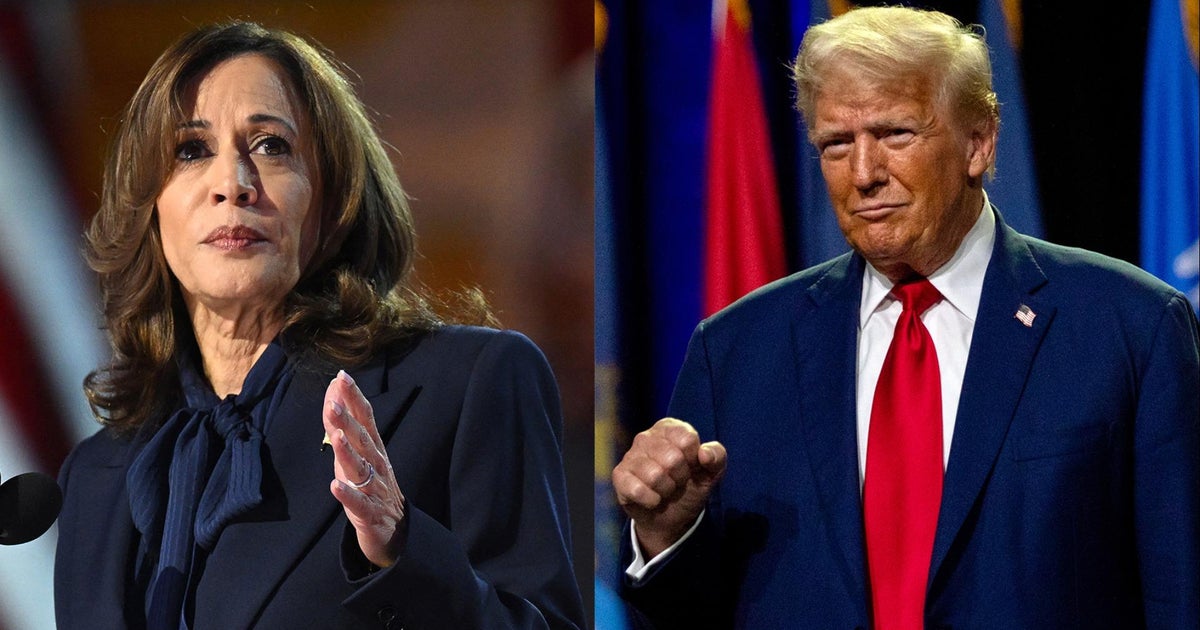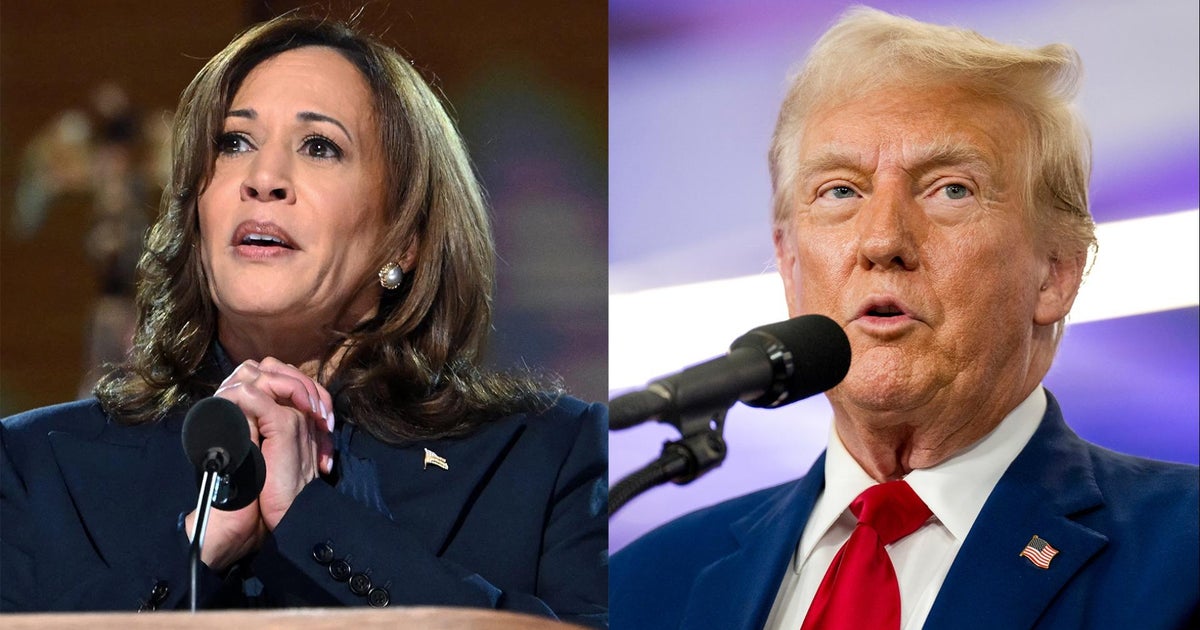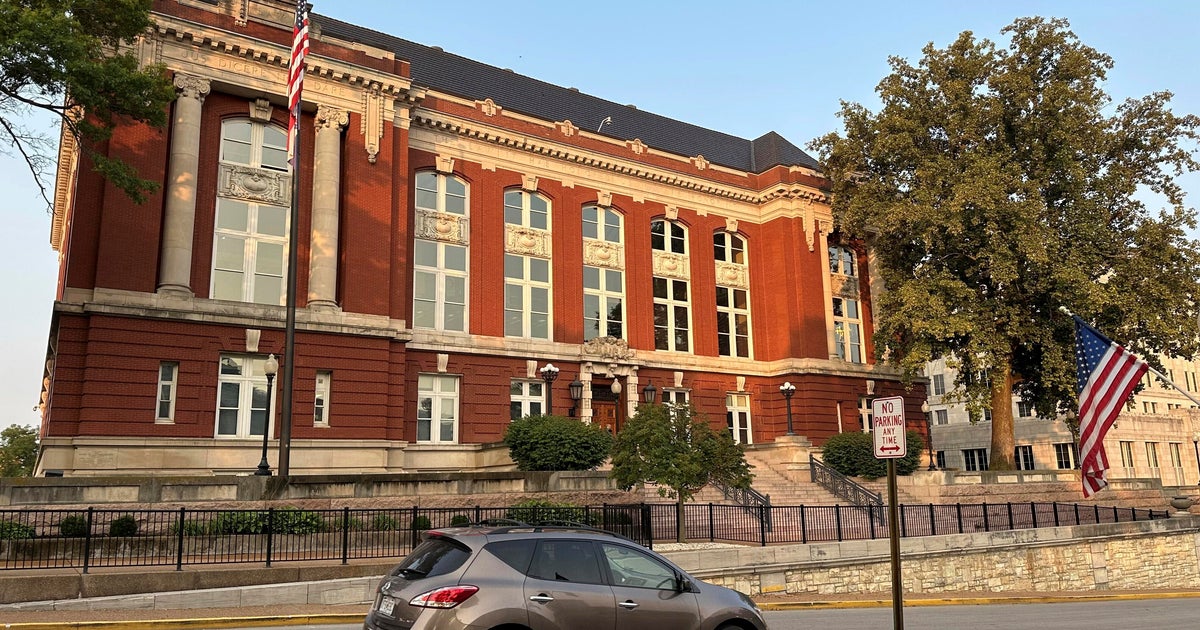Washington — Special counsel Robert Hur issued his report on President Biden’s handling of classified documents from his time as vice president, finding that no criminal charges were warranted. The special counsel said he would have reached the same conclusion even if the Justice Department did not foreclose charges against a sitting president.
“We conclude that the evidence does not establish Mr. Biden’s guilt beyond a reasonable doubt,” the report says. “Prosecution of Mr. Biden is also unwarranted based on our consideration of the aggravating and mitigating factors.”
But Hur’s report nonetheless contained significant criticism of Mr. Biden and his handling of classified information.
“Our investigation uncovered evidence that President Biden willfully retained and disclosed classified materials after his vice presidency when he was a private citizen,” the report said.
The special counsel’s 345-page report offers a detailed picture of Mr. Biden’s final days as vice president and the years that followed. Classified documents that should have been sent to the National Archives and Records Administration (NARA) instead ended up in various locations including his homes and offices.
Investigators conducted 173 interviews of 147 witnesses — including the president himself. They collected over 7 million documents from both classified and unclassified sources.
There were documents marked classified regarding military and foreign policy in Afghanistan and notebooks containing Mr. Biden’s entries about national security and foreign policy matters “implicating sensitive intelligence sources and methods,” according to the report.
The special counsel said Mr. Biden’s conduct “present[ed] serious risks to national security, given the vulnerability of extraordinarily sensitive information to loss or compromise to America’s adversaries…But addressing those risks when pursuing criminal charges, the only means available to this office, is not the proper remedy here.”
During Mr. Biden’s eight years as vice president, he took notes, some of which were “related to classified subjects including the President’s Daily Brief and National Security Council meetings,” the report stated. The notebooks Mr. Biden used were kept in his Virginia and Delaware homes, and he used them as reference material for his 2017 memoir “Promise Me, Dad” and shared contents with his ghostwriter.
But the special counsel determined that “the evidence does not establish Mr. Biden’s guilt beyond a reasonable doubt” and listed various potential defenses that could demonstrate that the documents could plausibly have been brought to these locations by mistake.
“Mr. Biden shared information, including some classified information, from these notebooks with his ghostwriter,” the report said, adding that the ghostwriter deleted audio recordings made for the memoir upon learning of the special counsel’s appointment.
“The recordings had significant evidentiary value,” the report said. But the FBI was able to recover the deleted files from the ghostwriter’s computer. The government considered charging the ghostwriter with obstruction but ultimately decided against it based on their findings.
Special counsel and Biden’s memory
Hur’s team determined it would not be able to prove willful retention beyond a reasonable doubt.
Prosecutors said it was possible that Mr. Biden would “present himself to a jury, as he did during our interview of him, as a sympathetic, well-meaning, elderly man with a poor memory.” During his interview with Hur, the special counsel wrote that the president was confused about the timeline of events and was unable to ascertain questions about his time as vice president.
In a letter to Hur, the White House counsel’s officeurged the special counsel to “revisit” and “revise”the descriptions of Biden’s memory in the final report. The office said that in the report, the special counsel “accepts other witnesses’ memory loss as completely understandable given the passage of time.” However, in discussing the president’s limited recall of events that took place years ago, the special counsel on occasion uses “prejudicial and inflammatory terms.”
Mr. Biden said Thursday afternoon that he was “pleased” to see the special counsel concluded “that there are no charges that should be brought in this case.” He said it was an “exhaustive investigation” that had reached back 40 years into his political career.
“The special counsel acknowledged I cooperated completely. I did not throw up any roadblocks. I sought no delays,” the president said. “In fact, I was so determined to get the special counsel what they needed, I went for a five-hour in person interview over two days of October — the 8th and 9th — even though Israel had just been attacked by Hamas on the 7th. I was in the middle of handling an international crisis.”
He added,”I was especially pleased to see the senior special counsel make clear there’s stark differences between this case and Donald Trump.” At the time, he made no mention about remarks regarding his memory in the report. But in remarks later Thursday night, the president offered a fuller response to the report.
“There’s some attention paid about my recollection of events.” Mr. Biden said. “There’s even a reference that I don’t remember when my son died. How in the hell dare he raise that? Frankly, when I was asked the question, I thought to myself it wasn’t any of their damn business.” The president added, “I don’t need anyone to tell me when he passed away.”
Asked by a reporter about a phrase used by the special counsel in the report to describe Mr. Biden’s potential reception by a jury as a “well-meaning, elderly man with a poor memory,” the president responded, “I’m well-meaning and I’m an elderly man and I know what the hell I’m doing. I’m the president, and I put this country back on its feet.”
“My memory is fine,” he added. “Take a look at what I’ve done since I became president.”
The president also told reporters that in retrospect, he would have overseen the transfer of material in his offices to the National Archives, a task he said that was undertaken by his staff. Mr. Biden said he was unaware that boxes of documents had been taken to the garage in his home. And he said he wished “I had paid more attention to how and where the documents were moved.” But he also said that at least it was privately held in his home, not in “a public place in Mar-a-Lago.”
Trump documents investigation
Hur’s investigation into Mr. Biden’s handling of classified documents began against the backdrop of another special counsel investigation into Mr. Biden’s predecessor, Donald Trump.
Trump has pleaded not guilty to 40 federal counts that he allegedly retained classified documents at his Mar-a-Lago estate and rebuffed Justice Department and NARA efforts to retrieve them. FBI personnel executed a search warrant at Mar-a-Lago in August 2022 and gathered in all more than 300 documents with classified markings. The former president was charged with illegally retaining 32 of them. Jack Smith was appointed special counsel three months later, shortly after Trump announced his 2024 bid for the White House.
Hur’s report explicitly compares Mr. Biden’s response to the federal investigation with Trump’s. Where Mr. Biden sat for an interview and was cooperative with investigators, “Mr. Trump allegedly did the opposite,” Hur wrote. “According to the indictment, he not only refused to return the documents for many months, but he also obstructed justice.”
In early January 2023, CBS News reported that classified documents had been found at Mr. Biden’s private office. The White House later disclosed that more documents with classification markings had been found by his lawyers in the garage and an adjacent room of his Wilmington home in mid-December 2022. The special counsel’s report confirms that FBI agents recovered materials from these locations.
Hur outlines material distinctions between Trump and Mr. Biden in their handling of sensitive documents. In Mr. Biden’s case, the special counsel found there wasn’t evidence that he had personally moved the documents. He cooperated with the investigation, and he may have forgotten about the documents.
Still, the special counsel seemed to take issue with Mr. Biden’s continued retention of various documents after he discovered them in his possession.
The Justice Department said that it received Hur’s report Monday evening and submitted it to Congress Thursday.
The White House counsel’s office concluded its privilege review of Hur’s report on Thursday morning and told the Justice Department that Mr. Biden declined to assert privilege over any portion, “in keeping with his commitment to cooperation and transparency throughout this investigation,” according to Ian Sams, spokesperson for the office.
Classified documents related to Afghanistan, Iraq found in Biden’s home basement in Delaware
Hur’s report details the chain of events that led to his investigation, including when Mr. Biden’s personal attorneys found documents with classified markings in his office, his Wilmington, Delaware, garage and basement den. Investigators said they found in a basement cabinet a three-page PowerPoint presentation regarding Afghanistan that bore classified markings and a three-page memo labeled “Top Secret” that was related to Iraq.
Between January and June 2023, FBI agents searched over 300 boxes of material from Mr. Biden’s time as a U.S. senator that were stored at the University of Delaware. “Within those boxes, agents found documents with potential classification markings, dating from 1977 to 1991, during Mr. Biden’s service in the Senate,” the report said.
Hur’s team looked through all of Mr. Biden’s handwritten notes and submitted 37 excerpts from 109 notebook pages for classification review by the intelligence agencies from which they originated. Prosecutors wrote that some of the handwritten notes contained information about intelligence sources and methods, military programs and capabilities, and “[p]lans and capabilities of foreign terrorist organizations.”
Among those excerpts, eight were “Top Secret with Sensitive Compartmented Information,” and seven of the excerpts included information concerning human intelligence sources. Six were “Top Secret,” 21 were “Secret” and two were “Confidential.”
The report alleges that during Mr. Biden’s vice presidency, his staff struggled to “retrieve classified briefing books” from him and also stated that he had been instructed on best practices for handling classified information. His use of notebooks and note cards to memorialize various meetings seemed to have complicated those efforts, according to the report.
While many of the notecards were properly stored in a security facility with the National Archives, the notebooks were stored in unsecured containers in his home.
“Though none of the notebooks have classification markings, some of the notebooks contain information that remains classified up to the Top Secret/Sensitive Compartmented Information level,” the report found.
Unlike Trump, Mr. Biden sat for an interview with the special counsel in October. During the discussion, Hur wrote that Mr. Biden said he kept the notebooks because “[t]hey are mine.”
“Every President before me has done the same exact thing,” Mr. Biden told the special counsel, according to the report.
It was during the writing of his memoir that Hur said Mr. Biden “relied extensively” on his notebooks and mentioned their contents to his ghostwriter. With one exception, “Mr. Biden did not let Zwonitzer (the ghostwriter) read or handle the notebooks,” the report said, detailing instances in which Mr. Biden worked to prevent disclosing the information.
In one instance, however, the report says Mr. Biden showed the ghostwriter a written passage and said, “some of this may be classified, so be careful.”
“I’m not sure. It isn’t marked classified, but,” Mr. Biden added, the report said.
Hur found that there is evidence Mr. Biden knew the notebooks were classified but kept them anyway, as he did with a classified memo he found in his garage related to the 2009 withdrawal of U.S. troops from Afghanistan.



